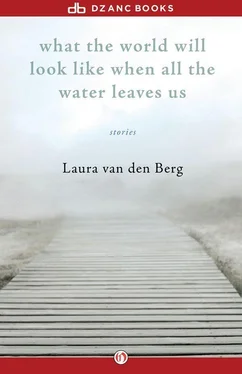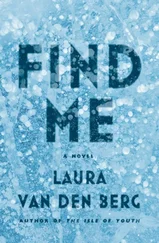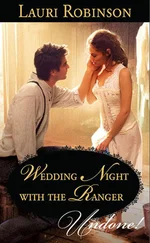I had called Peter once since coming to Inverness, sitting at a desk in the corner of my room and staring out the window, bending my calling card in my hand. He had left me three months ago, though I was often surprised by how much time had passed, the pain still so immediate. When the phone rang and Peter’s answering machine came on, I breathed into the receiver and struggled to think of something casual yet significant to say, all the while watching McKay’s mini-submarine gradually emerge in the center of the lake. Water slid off the dark metal and, in the later afternoon sunlight, the machine gleamed. I hung up the phone without leaving anything on the machine except the sound of my breath, too transfixed by the movements of the submarine to feel the sense of defeat and embarrassment that would descend upon me later in the day.
Lying on my back in bed, the covers bunched around my waist, I thought of the underwater caves hidden in the Loch, of McKay piloting the submarine into one of the caverns, his face tightening as the water darkened and shadows passed over the submarine. He was odd-looking, slight and a little dead-eyed, a contrast to Sarah’s airy beauty. But there was something electric about him too, something inviting. I wondered if he was frightened when the submarine disappeared beneath the surface, or if a part of him wanted to remain there always.

In the morning, before Sarah delivered me to Reelig Glen, where I would continue my search for the twinflower, I took a walk along the bank of the Loch. The fog was thickest in the morning and after drifting farther from the hotel, I realized the white haze had surrounded me. I knew I was late for work; in the distance, I thought I heard Sarah calling my name. I kept walking.
D.C. always looked hazy at the start of the day, although it was not white like the fog of Scotland, but gray, a mixture of early morning mist and smog. After leaving our DuPont Circle apartment in the mornings, Peter and I would go to a coffee shop for tea and pastries, then ride the metro to Georgetown University, where we taught in the graduate programs. We had lived together for four years. For a long time, I had believed we would one day marry.
I stopped to pick up an object lying in the dirt: a portion of a cigar, damp and leafy, the tip bitten down to a dull point. Left by one of the bagpipers, I assumed, inhaling the scent before flicking it back onto the ground. When I rose and stepped forward, the shock of the wetness, which traveled halfway up my calf, sent me reeling backwards, landing on the bank of the lake. Through the fog, I could not see where water met shore, but I surely had gone farther than intended. I jumped up and walked briskly toward the Craigdarroch. My breathing slowed as the landscape became more visible, the hills and mountain peaks. Once I was free of the densest fog, I spotted a figure approaching the lake. I raised a hand. The person stopped, but didn’t gesture toward me. When I was close enough to recognize McKay’s face, I called out his name.
His hair was more disheveled than usual, his hooded eyes rimmed with pink. He didn’t speak until we were face to face, until he looked down at the dark leg of my jeans.
“What were you doing out there?”
“Went for a walk,” I said. “I couldn’t see properly.”
“Looks like you got too close to the edge. Not sure I’d do that again.”
“I’ve heard the Loch Ness Monster lives deep in the lake, that it never attacks people on the shore.”
“Then you haven’t heard all the stories.”
“What have you planned for this week?” I asked.
“We’ll be reviewing new data and doing repairs for the next two days,” he said. “And then I’m taking the submarine to the bottom of Urquhart Bay.”
I was familiar with that section of the Loch. I often passed the ruins of Urquhart Castle, which overlooked the lake, while leaving and returning to the Craigdarroch.
“It’s the last step,” he continued. “Going to the bottom.”
“Then it’s all over?”
“If we find nothing, the others pack up and go home.”
“How long have they been in Inverness?”
“Eight weeks.” He paused, pushed a hand into the back pocket of his jeans. “The lake is twenty-one miles long and a mile wide. Two months was barely enough.”
I looked toward the Craigdarroch and saw Sarah standing by her van, waving. After I waved back, she pointed at her wristwatch and then raised her arms.
“Late for the laboratory?” McKay asked.
I nodded. “The other members of my research team work in the mornings. Your wife has been kind enough to drive me.”
“What are you looking for?”
“The twinflower.” I described the appearance of the flower, two bell-shaped blossoms that hang from a slender stem. “They’re very rare now, so I suppose I’m looking for the extraordinary.”
McKay smiled a little before turning away. “Aren’t we all.”
I watched until he disappeared into the fog like an apparition, never once looking back at me or his wife. I walked over to Sarah’s maroon van and climbed into the passenger seat. My wet pant leg stuck to my skin, the denim cold and rough.
“Sorry to be so slow.” I pointed at my jeans. “I had a mishap at the lake.”
She started the car. “Hopefully it didn’t involve anything that would require the attention of the monster hunters.”
“No,” I said. “Just my own clumsiness.”
“I don’t go down to the water very often,” she said. “That’s my husband’s territory.”
I mentioned McKay had just been telling me about Urquhart Castle and his plans for the mini-submarine.
“When I first met my husband, he was living in a camper on the edge of the Loch,” she told me. “He started coming to my inn for meals. He had quit his job and left his fiancé to find the Loch Ness Monster.”
“I see he hasn’t given up his search.”
“Not at all,” she said. “And he finally got the attention of the BBC, of all things. I hope, for his sake, that they find something the next time he takes the sub down.”
I watched the silver charm in the shape ofaship’s anchor jingle from the rearview mirror. Sarah told me that the first summer they were married, he spent all his nights in a tent outside, so he could watch for the monster.
“That’s how I know about the bagpipers,” Sarah said. “He befriended them.”
“Has it ever bothered you?” I asked. “His obsession?”
Sarah kept her eyes on the road. She wore a fuzzy sweater and corduroy pants. The inside of her car smelled like lavender. I worried I had pried too much, been too direct in my questioning.
“Some things you can get used to, and some things you can’t,” she said. “I’ve left men over much less, but, for whatever reason, I was willing to get used to this.” She braked lightly as she negotiated the sharper curves in the road. “I think, one day, he’ll find something that satisfies him and the quest will be over.” She went quiet for a moment. “I’m not even sure what that would be like,” she said. “What that would mean.”
I looked out the window. Clouds, marbled with gray, loomed like mountains. I wondered what it was about me that Peter had decided he couldn’t get used to. When we passed Urquhart Castle, the crumbling stone walls and fallen-in tower reminded me of a forgotten city.

I wandered through Reelig Glen, the dense vegetation brushing my knees, the shadows cast from the enormous Douglas Firs darkening the ground. The twinflower had eluded me on this excursion, but I had collected samples of pilwort, a small fern. I’d only covered a portion of Reelig Glen and would continue my search tomorrow.
Читать дальше














